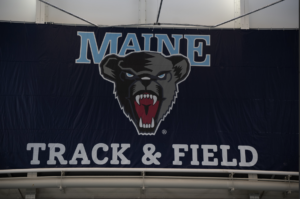The United States has always boasted baseball its national pastime. However, a 2014 survey taken by the Harris Poll shows that football has overtaken baseball in popularity for the past 30 straight years, with 35 percent of fans saying that football was their favorite sport while only 14 percent of the vote supported America’s “favorite” pastime.
According to Jonathan Mahler of the New York Times, the decline of baseball began during the 1950s and 1960s, when baseball spread away from its urban, northeastern roots. Baseball embraced legend and nostalgia to generate interest in areas that wouldn’t have given them much attention otherwise.
“Baseball’s never-ending nostalgia trip has made it an inherently conservative sport, one that’s forever straining to live up to its own mythology,” Mahler said in his article.
The southward expansion of baseball has resulted in it becoming a highly regionalized sport, which may be another reason for a decrease in national popularity. Lack of success among a wide variety of teams may also be a reason for decreasing fanbases. In a typical postseason when baseball is in the national spotlight, the Yankees and Red Sox dominate, leaving a large portion of baseball fans without a team to root for.
In stark contrast the NFL includes a variety of teams from different areas across the U.S. each playoff season. The one and done style tournament also creates a level of excitement that baseball seems to be lacking.
“It seems almost incredible that Jonathan Mahler doesn’t explicitly state the obvious reason baseball is fading from the national discussion: too many games that simply go on too long … A little NFL-like precision and discipline will go a long way toward reviving what is the most joyous of all games,” Jeffrey Lyons, a movie critic and author of four baseball-related books, commented in a letter to the New York Times.
Football is faster, louder and more attuned to pop culture as opposed to an increasingly dull baseball market that lacks branding and appeal to a younger crowd.
That isn’t to say that football isn’t without its own faults. The number of football players who are up and coming continues to decrease in recent years.
In New Jersey, coaches at numerous schools are struggling with a shortage of players to fill their rosters. In 2017, there were nearly 1,700 fewer football players than the previous year. This is a problem considering that New Jersey has a long history of grooming top college players, many of whom have later played for the NFL. According to experts, this could be due to the high rates of injury in football leading to parents being hesitant about their children participating in the sport.
According to surveys taken by Toluna, the solution to the decreasing popularity of America’s national pastime might lie in how long a game lasts, or it maybe just in the way that it is viewed. The Toluna research showed that there is a marked difference in perception of pace between fans watching in person from the stands and those watching live on TV.
42 percent of surveyed sports fans said that, while in the stands, the game felt just right. Whereas out of those watching on TV or on a mobile device, 32 percent said the pacing was fine. The exception was the more regular fans who enjoyed the game just as much on the screen as they did in person.
An article on ESPN with suggested improvements for baseball viewing includes, among other things, shorter commercial breaks and fewer mound visits. If the game were a faster pace, 74 percent of millennials surveyed said they would consider watching, allowing the MLB to access a demographic they’re currently missing out on.
For now the challenge for the MLB is to find the balance between appealing to a new group of potential fans, without losing the ones who already love baseball.
With so much to gain, so little to lose and with baseball still ranked as the second most popular sport in the United States, the “national pastime” is far from obsolete.






